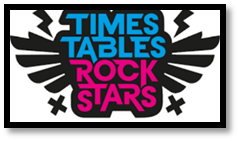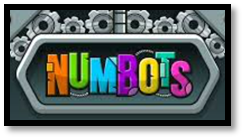Maths
At Chislet and Hoath Church Of England Primary Schools, we want all our pupils to be confident and competent mathematicians. Through a mastery approach, we aim to
- Ensure children have a fluent knowledge of arithmetic;
- Be able to work with numbers;
- Apply their skills to problem-solving;
- Have the ability to reason;
- Using known mathematical facts;
- Use appropriate mathematical vocabulary to concisely explain their reasoning of a mathematical problem through rich and varied mathematical content;
- Ensure that pupils do not see maths as an isolated subject but as part of their everyday lives;
At Chislet and Hoath we use the White Rose scheme of learning to support our planning of lessons from EYFS to Year 6. We also use the Mastering Number Programme from EYFS to Year 3 to understand and recall addition facts. Children learn to subitise (recognise a number of objects without having to count), understand numerical concepts and recall basic number facts. Lessons are structured around the mastery approach with a high emphasis on concrete manipulatives to promote understanding.
'Mastering maths means pupils acquire a deep, long-term, secure and adaptable understanding of the subject.'
The phrase ‘teaching for mastery’ describes classroom practice and school organisation elements that combine to give pupils the best chances of mastering maths.
Achieving mastery means acquiring a solid enough understanding of the maths that’s been taught to enable pupils to move on to more advanced material.
NCETM 2020
Our daily maths lessons follow the five big ideas for Maths Mastery: Variation, Representation and Structure, Mathematical Thinking, Fluency and Coherence. For further information and examples of these areas in practice, please see the link ‘Using the 5 Big Ideas’ at the bottom of the page.
Our maths curriculum is of a high quality and ensures there is clear progression and sequential learning. The information gathered through lessons and assessments guides future planning of teaching and learning opportunities, ensuring that we are responsive to the needs of our learners.
We assess our children using the White Rose Hub end of unit checks and progress is measured against our Maths End Goals, found through the link below. Formal assessments are also carried out throughout the year, including KS1 end of year assessments and KS2 SATS in the spring/summer term, whilst the Multiplication Tables Check takes place in the Year 4 summer term. In order to support the children in a fun and interactive way, we use Times Table Rockstars, which can also be accessed at home whilst our EYFS and KS1 pupils explore number games through Numbots.
In EYFS we use Mastering Number alongside White Rose to ensure children have the appropriate mathematical knowledge required to access the Year 1 curriculum. We relate the mathematical aspects of the children's work to the Development Matters statements and the Early Learning Goals (ELG).
ELG: Number
We provide children with opportunities to; develop their understanding of numbers to 10; including the composition of each number, subitise and automatically recall number bonds up to 5 and some number bonds to 10 including double facts.
ELG: Numerical Patterns
We provide children with opportunities to; verbally count beyond 20, recognising the pattern of the counting system, compare quantities up to 10 in different contexts and explore and represent patterns within numbers up to 10.



